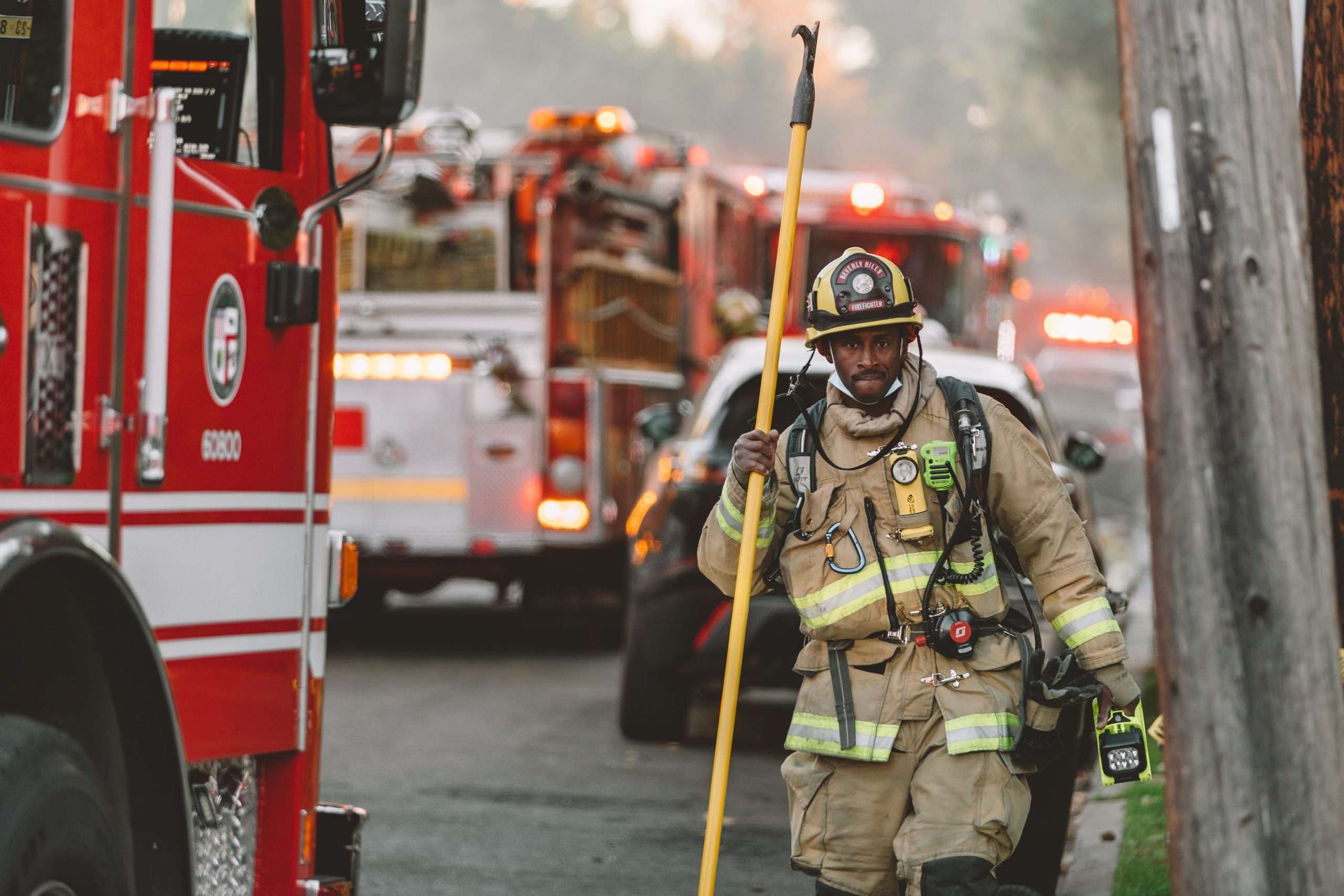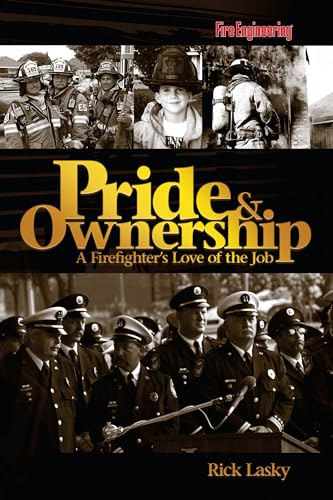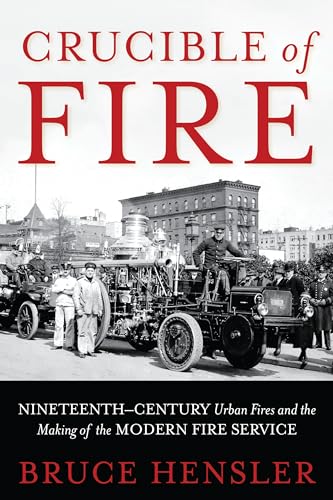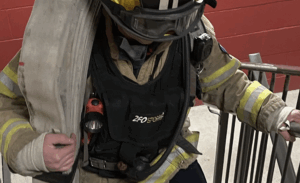When one thinks of a firefighter’s role, the image of a hero battling blazing infernos often comes to mind. While that’s undoubtedly a significant part of the job, the benefits of a firefighter career extend far beyond just bravery. Let’s explore the diverse advantages that come with this extraordinary profession.
1. Job Security and Stability
In the ever-shifting landscape of employment, where industries rise and fall, the role of a firefighter stands as a rock of job security and stability. Firefighting isn’t just a career; it’s a calling rooted in the timeless necessity of safeguarding lives and property.
Communities rely on firefighters to be their steadfast protectors. Regardless of economic fluctuations, the need for firefighters remains unwavering. In good times and bad, fires still rage, emergencies occur, and citizens depend on the brave men and women who answer the call.
This unwavering demand for firefighters means that job security is not a mere perk but an integral benefit of a firefighter career. While many professions ebb and flow with economic tides, firefighting remains a constant, offering peace of mind in the face of financial uncertainty.
The firefighter’s role is a reassuring anchor in a world where job markets can be turbulent and careers volatile. The flame of job security and stability in the firefighting profession burns brightly, offering a livelihood and a lifelong commitment to serving the community.
2. Competitive Compensation
In firefighting, the rewards extend beyond the intrinsic satisfaction of service. Firefighters are not only heroes but also well-compensated professionals. The salary structure in this field aptly reflects the level of responsibility and dedication required.
At the foundation of this robust compensation package is the base pay. This provides a stable income, typically commensurate with the rigorous training, continuous education, and courage that define the profession. While exact figures may vary depending on location, experience, and department size, base pay is a reliable component of a firefighter’s earnings.
Yet, the financial rewards continue beyond there. Firefighters can supplement their base pay through overtime, which is not uncommon given the unpredictable nature of emergencies. Responding to crises at all hours and in all conditions ensures that overtime is often available, allowing firefighters to boost their income significantly.
Additionally, hazard pay is another essential element in the compensation package. Firefighters confront dangerous and life-threatening situations daily, putting their well-being on the line for the safety of their communities. Hazard pay recognizes this extraordinary commitment and compensates accordingly.
As for the specifics, compensation can vary depending on the region. In the United States, for instance, the annual base pay for a firefighter may range from around $50,000 to $70,000, with top earners in some areas exceeding $90,000 per year. Salaries tend to be more competitive in larger metropolitan areas or regions with higher living costs. These figures reflect the dedication and valor required of those who choose to become firefighters.
In summary, firefighting offers the satisfaction of serving and protecting the community and competitive compensation that recognizes the significance of their role. Firefighters not only battle blazes but also secure their financial well-being and that of their families while dedicating themselves to a noble cause.
3. Excellent Benefits Package
Firefighting is not just a job; it’s a way of life. And to safeguard those who safeguard us, most fire departments provide an excellent benefits package beyond the standard fare. It’s a testament to the care and consideration of firefighters’ well-being and long-term financial security.
At the heart of these benefits is healthcare coverage. Firefighters and their families often have access to comprehensive health insurance plans, ensuring that medical needs are met without unnecessary financial burdens. This includes traditional health insurance and dental and vision coverage, recognizing the importance of overall well-being.
In addition to safeguarding their physical health, firefighters have financial security in their sights. Retirement plans are a vital component of the benefits package, offering peace of mind for the future. These plans, which can vary between departments, generally include defined benefit pensions or defined contribution plans, with some even offering a combination of both. This commitment to long-term financial security recognizes the job’s dedication and often physically demanding nature.
Furthermore, disability coverage is a crucial safety net. Firefighting can be a physically taxing profession, and injuries can occur in the line of duty. Disability coverage ensures that firefighters and their families are financially protected if such unfortunate circumstances arise.
While the specific details of these benefits can vary by department and region, the overarching principle remains constant: firefighters are not only the first responders to emergencies but also the ones cared for by their communities. The benefits package reflects the mutual trust and respect between firefighters and the public they serve.
In firefighting, where heroes protect the lives and property of their communities, these excellent benefits ensure that the protectors are themselves well-protected and cared for, promoting a noble, sustainable, and secure career.
4. Early Retirement Options
One unique and highly appealing benefit of a firefighter career is the possibility of early retirement. Firefighters can often retire relatively young, typically with full retirement benefits. This option gives them time and the chance to enjoy a comfortable retirement while still active and healthy.
The concept of early retirement for firefighters is rooted in the understanding of the physically and mentally demanding nature of the profession. The job can take a toll on the body and mind, and it’s essential to recognize the sacrifices made by these first responders.
To address this, many fire departments offer retirement plans allowing firefighters to retire earlier than the standard retirement age, often set at 65 for the general population. The exact terms and conditions of early retirement can vary between departments, but they typically involve a combination of age and years of service requirements.
For instance, a typical early retirement option might be available to firefighters who have reached a specific age, such as 50 or 55, and have accrued several years in service, often ranging from 20 to 25. When these criteria are met, firefighters can retire with full or nearly complete pension benefits.
This early retirement option not only honors the dedication and service of firefighters but also recognizes the challenges they face on the job. It allows them to enjoy retirement while in good health, pursue personal interests, spend time with family, or even explore new career paths.
Moreover, the early retirement option can be seen as a reflection of communities’ deep appreciation and respect for their firefighters. It is a way of giving back to those who have given so much in the line of duty.
While the specifics of early retirement options may vary, the overarching message is clear: firefighters can embrace retirement earlier than most, ensuring they have time to savor the rewards of their years of dedicated service.
5. Varied Work Schedule
Firefighters enjoy a unique and varied work schedule that sets them apart from many other professions. Most fire departments operate on a rotating shift schedule, which can effectively benefit those looking to balance their work and personal lives.
The rotating shift schedule typically involves working a set number of days, followed by an extended period off. While the specific shift lengths and schedules may vary between fire departments, a typical example is the 24/48 schedule. Under this arrangement, a firefighter works a 24-hour shift and 48 hours off-duty.
This schedule offers several advantages:
- Extended Time Off: Firefighters often have more consecutive days off than many other professionals. This ample time away from work allows one to pursue personal interests, spend quality time with family, and maintain a healthy work-life balance.
- Flexibility: The rotating shift schedule allows firefighters to plan vacations, attend family events, and manage personal commitments during their days off. This flexibility can be especially valuable for those with varied interests and responsibilities outside of work.
- Additional Employment: Some firefighters take on second jobs or pursue further education during their extended time off. This can provide an extra source of income or the chance to explore other career paths.
- Community Involvement: The schedule also enables firefighters to engage with their local communities. They can participate in community events, volunteer activities, or support local initiatives during their days off, strengthening their connections with the neighborhoods they serve.
While the rotating shift schedule has advantages, it’s essential to acknowledge that it can also be physically and mentally demanding. Firefighters must be prepared to respond to emergencies during their shifts, including long and strenuous work hours. However, the extended time off provides the necessary opportunity for rest and recovery.
The varied work schedule in the firefighting profession is designed to help firefighters balance their professional responsibilities and personal lives. It offers flexibility, extended time for relaxation and personal pursuits, and the chance to remain actively engaged in their communities.
6. Health and Fitness Focus
Maintaining peak physical condition is not just a choice but a core requirement for firefighters. The job demands strength, endurance, and resilience, as they are frequently exposed to physically demanding and hazardous situations. As a result, fire departments significantly emphasize their personnel’s health and fitness, promoting their professional effectiveness and overall well-being, making it a significant benefit of a firefighter career.
Here are the critical aspects of the health and fitness focus in the firefighting profession:
Physical Preparedness: Firefighters must be ready to respond to emergencies at any moment, which can entail lifting heavy equipment, climbing ladders, and navigating challenging environments. Being physically fit ensures that they can perform these tasks safely and effectively.
Health and Longevity: Firefighting can be physically taxing, and maintaining good health is crucial to a long and productive career. Staying physically fit helps reduce the risk of injury, illness, and chronic health issues, promoting a longer and more active professional life.
Training and Support: Fire departments often provide fitness facilities and resources to support their personnel’s health and fitness goals. These facilities can include gyms, workout equipment, and wellness programs designed to help firefighters stay in top shape.
Wellness Initiatives: Many fire departments actively encourage healthy lifestyles among their staff. They may offer wellness programs, nutritional guidance, and access to healthcare services to promote overall well-being.
Team Camaraderie: Physical fitness is not just an individual endeavor; it’s a shared commitment within the fire service. Firefighters often work out together and engage in group activities that foster a strong sense of camaraderie and teamwork.
Mental Resilience: Staying physically fit also contributes to mental resilience. Firefighters learn to manage stress and maintain focus during high-pressure situations, and a strong physical foundation supports this mental strength.
Community Role Models: By maintaining their health and fitness, firefighters serve as role models within their communities, demonstrating the importance of leading a healthy lifestyle.
Firefighting’s health and fitness focus extends beyond physical appearance. It’s an essential element of the firefighter’s commitment to thoroughly preparing for their diverse challenges. By staying in excellent physical condition, firefighters can effectively fulfill their duties, reduce health risks, and enjoy a long and fulfilling career dedicated to protecting their communities.
7. Opportunities for Advancement
One of the compelling benefits of a firefighting career is the abundant opportunities for advancement. Firefighters can embark on a professional journey filled with personal growth and increased responsibility, leading to a fulfilling and dynamic career.
Here are some key facets of opportunities for advancement within the fire service:
Promotional Ladder: Fire departments typically have a well-defined promotional structure, allowing firefighters to ascend ranks. This ladder includes positions like Engineer, Lieutenant, Captain, Battalion Chief, and even higher roles depending on the department’s structure. As firefighters gain experience and demonstrate leadership capabilities, they become eligible for promotions to these higher positions. For instance, a firefighter might advance to Lieutenant, responsible for supervising a crew and managing fire scenes.
Specialization: The firefighting profession offers various specialized career paths. Firefighters can choose to specialize in areas such as hazardous materials (Hazmat), technical rescue (e.g., high-angle, confined space), wildland firefighting, arson investigation, or emergency medical services (EMS). For example, a firefighter inclined toward Hazmat can become part of the Hazardous Materials Response Team and focus on handling hazardous materials incidents. This specialization enhances a firefighter’s expertise and opens up unique career opportunities.
Leadership Roles: As firefighters progress in their careers, they often find themselves in leadership positions, such as Captain or Battalion Chief. These roles come with increased responsibility and decision-making authority, allowing individuals to guide and lead their teams effectively. For instance, a Captain may oversee an entire fire station, including personnel and equipment, while coordinating emergency responses.
Training and Education: Advancement in the fire service often entails continuous learning and education. Firefighters may need to pursue additional certifications and qualifications to qualify for higher positions. For instance, someone aiming for the position of a Fire Chief would typically need to complete a range of advanced courses and training programs.
Mentorship and Experience: Experienced firefighters play a vital role in mentoring and developing junior members of the department. This mentorship fosters professional growth and helps prepare future leaders within the fire service.
Reaching Leadership Pinnacles: Firefighters who aspire to achieve the highest leadership positions within the department, such as Fire Chief or Deputy Chief, can develop a long-term career strategy that involves gaining diverse experiences, honing leadership skills, and earning advanced degrees in fields like fire science or public administration.
The opportunities for advancement in the fire service are both numerous and rewarding. Whether firefighters aspire to lead teams, specialize in specific areas, or contribute to the profession’s evolution, the path for personal and professional growth is open, providing a fulfilling and challenging career journey.
In Conclusion
A career in firefighting is about more than just responding to emergencies. It’s a path that provides job security, competitive compensation, excellent benefits, and opportunities for personal and professional growth. Moreover, it’s a way to serve the community and make a meaningful impact. Becoming a firefighter offers a fulfilling and rewarding journey that extends beyond the heroics portrayed in popular culture. I’ve listed only seven benefits of a firefighter career, but there are more. If you are interested in firefighting as a career, go to my blog page, Learn How to Become a Full-time Firefighter, and read more.
Learn How To Become A Firefighter

Mastering the Firefighter Exam is a complete guide on how to pass the firefighter exam with a top score. It simplifies the complicated hiring practices of big city fire departments and reveals insider information most candidates don’t know about.
If You Would Like To Know How To Get A Head Of Your Competition, This Book Is For You.










